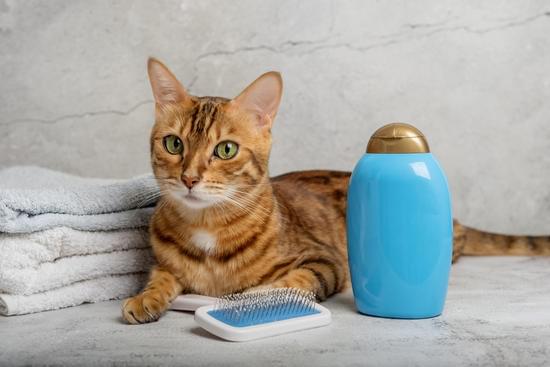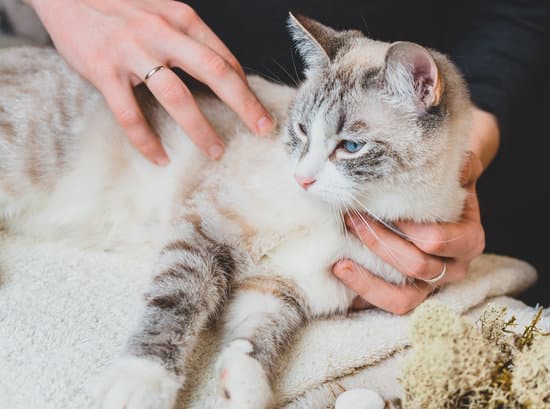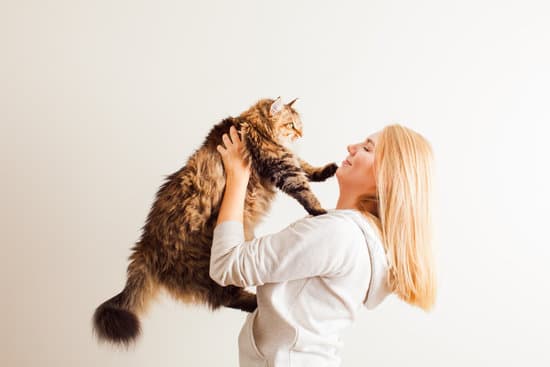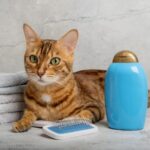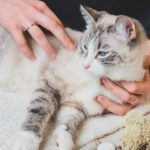Tips and Recommendations
Cats are beloved pets in many households, and their health is a top priority for their owners. One of the key factors in maintaining a healthy cat is ensuring they have a proper diet. The ideal diet for a healthy kitten should be balanced, nutritious, and tailored to their individual needs.
A balanced diet for kittens should include a variety of proteins, carbohydrates, and fats. Proteins are essential for maintaining muscle mass and providing energy, while carbohydrates provide a source of fiber and energy. Fats are necessary for maintaining healthy skin and coat, as well as providing energy. Additionally, cats require certain vitamins and minerals in their diet to support their overall health and well-being.
Fundamentals of Feline Nutrition
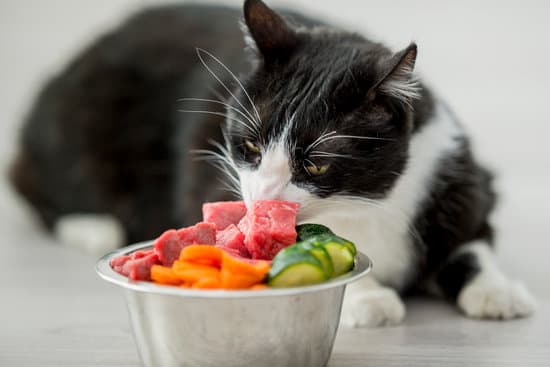
Macronutrients for Cats
Cats are obligate carnivores, which means that they require a diet that is high in protein and fat. Protein is essential for building and repairing tissues, while fat provides energy and helps with the absorption of fat-soluble vitamins. Carbohydrates are not a necessary component of a kitten’s diet, but some commercial kitten foods may contain them as fillers. It is important to choose a cat food that is high in quality protein and fat to meet their nutritional needs.
Essential Vitamins and Minerals
Cats require certain vitamins and minerals to maintain their health. These include vitamin A, vitamin D, vitamin E, vitamin K, the B vitamins, calcium, phosphorus, magnesium, and iron. These nutrients are important for various bodily functions such as maintaining healthy skin and coat, supporting the immune system, and aiding in bone growth and development. It is important to choose a kitten food that is formulated to meet these nutritional requirements.
Hydration and Water Intake
Cats require plenty of water to maintain their health. They are not naturally inclined to drink large amounts of water, so it is important to encourage them to drink by providing fresh, clean water at all times. Wet kitten food can also help to increase their water intake. Adequate hydration is important for maintaining healthy kidney function and preventing urinary tract infections.
In summary, a healthy diet for a kitten should be high in quality protein and fat, provide essential vitamins and minerals, and encourage adequate hydration. Choosing a high-quality commercial kitten food that is formulated to meet these nutritional needs is the best way to ensure that your cat is getting the nutrients they need to maintain optimal health.
Evaluating Commercial Cat Foods
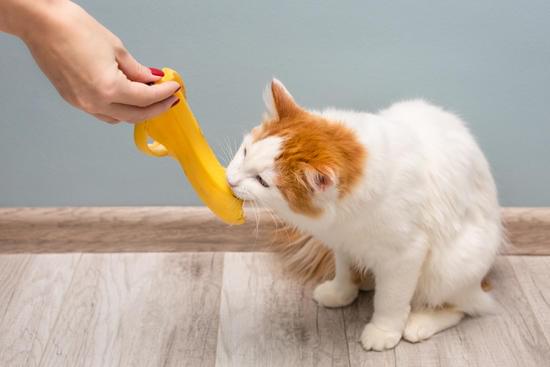
Reading and Understanding Labels
When evaluating commercial kitten foods, it is important to read and understand the labels. The ingredients list should be the first thing to look at, as it will give you an idea of the quality of the food. Look for whole food ingredients like chicken, fish, or beef, and avoid foods that contain by-products or fillers such as corn, wheat, or soy.
Next, look at the guaranteed analysis, which will tell you the minimum and maximum percentages of protein, fat, fiber, and moisture in the food. A high protein percentage is ideal for kittens, as they are obligate carnivores and require a diet high in protein to maintain their health.
Wet vs. Dry Food Considerations
When it comes to choosing between wet and dry food, there are a few factors to consider. Wet food is typically higher in moisture, which can help prevent urinary tract issues and promote hydration. However, it can also be more expensive and spoil more quickly.
Dry food is more convenient and can be left out for longer periods of time without spoiling. It is also more cost-effective than wet food. However, it can be lower in moisture and may not provide enough hydration for some cats.
Specialized Diets and Formulations
There are many specialized diets and formulations available for kittens with specific health concerns. For example, there are foods designed for kittens with urinary tract issues, sensitive stomachs, or weight management needs. It is important to consult with a veterinarian before making any changes to your cat’s diet, especially if they have a health condition.
When evaluating specialized diets and formulations, it is important to look for foods that have been formulated based on scientific research and have been approved by veterinary nutritionists. Avoid foods that make exaggerated or false claims, and always read the label and guaranteed analysis before making a purchase.
The Role of Raw and Homemade Diets
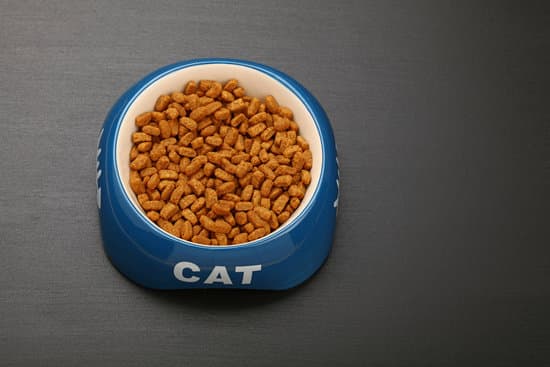
Benefits and Risks of Raw Feeding
Raw feeding has gained popularity in recent years as pet owners seek to provide a more natural diet for their kittens. Proponents of raw feeding argue that it can lead to improved digestion, healthier skin and coat, and increased energy levels. However, there are also risks associated with raw feeding, including the potential for bacterial contamination and an unbalanced diet.
One study found that raw diets were more likely to be contaminated with harmful bacteria such as Salmonella and Listeria than commercial diets. It is important for pet owners to handle raw meat carefully and follow proper food safety protocols to minimize the risk of bacterial contamination.
Additionally, it can be difficult to ensure that a raw diet provides all of the necessary nutrients for a kitten’s health. Without careful planning and monitoring, a raw diet can be deficient in essential vitamins and minerals, leading to health problems such as bone fractures and dental issues.
Designing Balanced Homemade Meals
Homemade diets can be a good alternative for kittens with specific dietary needs or allergies. However, it is important to ensure that the diet is balanced and provides all of the necessary nutrients for a kitten’s health.
When designing a homemade diet, pet owners should consult with a veterinarian or veterinary nutritionist to ensure that the diet is nutritionally complete. It may be necessary to supplement the diet with vitamins and minerals to ensure that the kitten’s nutritional needs are met.
Pet owners should also be aware that homemade diets can be time-consuming and may require more preparation than commercial diets. It is important to follow proper food safety protocols when preparing and storing homemade meals to minimize the risk of bacterial contamination.
In summary, raw and homemade diets can be beneficial for kittens when done properly. However, they also come with risks and require careful planning and monitoring to ensure that the kitten’s nutritional needs are met. Pet owners should consult with a veterinarian or veterinary nutritionist before making any significant changes to their kitten’s diet.
Life Stage Nutritional Needs
Kitten Nutrition
Kittens require a diet that is specifically formulated to meet their unique nutritional needs. During this stage of life, kittens are growing rapidly and need a diet that is high in protein, fat, and essential nutrients like calcium and phosphorus. A diet that is deficient in any of these nutrients can lead to growth and developmental problems.
It is important to choose a high-quality kitten food that is formulated to meet the nutritional needs of growing kittens. Look for a food that contains at least 30% protein and 20% fat, and is rich in vitamins and minerals like vitamin D, calcium, and phosphorus.
Adult Cat Maintenance
Once a cat reaches adulthood, their nutritional needs change. Adult cats require a balanced diet that is lower in calories and fat than kitten food. A diet that is too high in calories can lead to obesity, which can increase the risk of health problems like diabetes, heart disease, and joint problems.
Look for a high-quality cat food that is formulated to meet the nutritional needs of adult kitten’s. A food that contains at least 25% protein and 15% fat, and is rich in essential nutrients like fiber, vitamins, and minerals, is ideal.
Senior Cat Care
As cats age, their nutritional needs change once again. Senior kitten’s require a diet that is lower in calories and fat, but higher in protein and fiber to support their aging bodies. A diet that is deficient in protein can lead to muscle loss, while a diet that is too high in fat can contribute to obesity.
Look for a high-quality senior cat food that is formulated to meet the nutritional needs of aging kitten’s. A food that contains at least 30% protein and 10% fat, and is rich in essential nutrients like fiber, vitamins, and minerals, is ideal. Additionally, senior cats may benefit from supplements like glucosamine and chondroitin to support joint health.
Managing Dietary Health Issues

Obesity and Weight Management
Obesity is a common problem among kittens and can lead to several health issues, such as diabetes, heart disease, and joint problems. If your cat is overweight, it’s essential to manage their weight by controlling their calorie intake and increasing their physical activity.
One way to control calorie intake is by feeding your kitten a low-calorie diet. You can also reduce the amount of food you give them and ensure that they get enough exercise. It’s essential to consult with your veterinarian to determine the ideal weight for your kitten and develop a weight management plan.
Food Allergies and Sensitivities
Cats can develop food allergies or sensitivities, which can cause skin problems, gastrointestinal issues, and other health problems. If your kitten is showing signs of an allergy or sensitivity, such as vomiting, diarrhea, or skin irritation, it’s essential to identify the allergen and eliminate it from their diet.
Common allergens include beef, dairy products, and wheat. You can try feeding your kitten a hypoallergenic diet or a novel protein diet, which contains a protein source that your cat has not been exposed to before.
Chronic Conditions and Therapeutic Diets
Cats with chronic conditions such as kidney disease, diabetes, or urinary tract problems may require a therapeutic diet to manage their health. These diets are specially formulated to meet the unique nutritional needs of kittens with specific health problems.
It’s essential to consult with your veterinarian to determine the appropriate therapeutic diet for your cat’s condition. Some therapeutic diets may require a prescription, and it’s essential to follow your veterinarian’s instructions carefully.
Overall, managing your cat’s dietary health issues requires careful attention to their nutritional needs and health status. With proper management, you can help your cat maintain optimal health and well-being.
Supplements and Functional Foods
Probiotics and Digestive Aids
Probiotics are living microorganisms that can provide health benefits to cats when consumed in adequate amounts. They are commonly found in fermented foods such as yogurt, kefir, and sauerkraut. Probiotics can help maintain a healthy balance of gut bacteria, aid in digestion, and boost the immune system.
Digestive aids such as enzymes can also be beneficial for cats with digestive issues. Enzymes help break down food and improve nutrient absorption. They are often included in commercial cat foods, but supplements are also available. It’s important to consult with a veterinarian before giving your cat any digestive aids or probiotics.
Joint Support and Mobility
As cats age, they may experience joint pain and mobility issues. Supplements such as glucosamine and chondroitin can help support joint health and reduce inflammation. Omega-3 fatty acids, found in fish oil, can also have anti-inflammatory effects and improve joint mobility.
It’s important to note that supplements should not be used as a substitute for proper veterinary care. If your cat is experiencing joint issues, it’s important to consult with a veterinarian to determine the underlying cause and develop an appropriate treatment plan.
Overall, supplements and functional foods can be a helpful addition to a cat’s diet, but it’s important to use them appropriately and under the guidance of a veterinarian.
Feeding Practices and Behavior
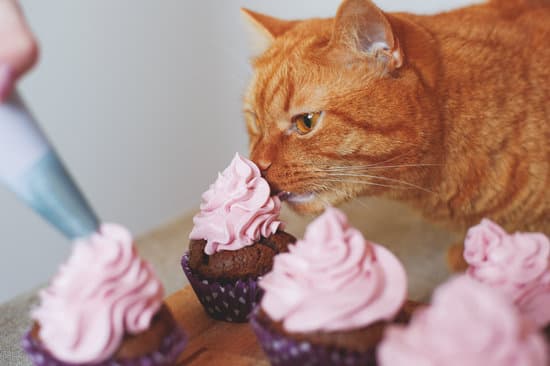
Meal Scheduling and Portion Control
Cats are natural grazers and prefer to eat small meals throughout the day rather than one or two large meals. It is important to schedule meals at regular intervals and provide the appropriate portion size for your cat’s weight and activity level. Overfeeding can lead to obesity and other health problems, while underfeeding can cause malnutrition and weight loss.
To ensure portion control, it is recommended to use a measuring cup or a kitchen scale to measure the amount of food given to your cat. The feeding guidelines on the cat food label can be used as a starting point, but adjustments may need to be made based on your cat’s individual needs.
Encouraging Natural Feeding Behaviors
Cats are natural hunters and prefer to “work” for their food. Encouraging natural feeding behaviors can help to improve your cat’s physical and mental well-being. Some ways to do this include:
- Feeding small meals throughout the day rather than one or two large meals
- Providing food puzzles or interactive feeders that require your cat to “hunt” for their food
- Hiding small amounts of food around the house for your cat to find
- Rotating the location of your cat’s food bowl to simulate a hunting experience
In addition to these feeding practices, it is important to provide your cat with fresh water at all times. Water fountains or multiple water bowls can encourage your cat to drink more water, which is important for their overall health.
Safety and Food Handling
Avoiding Toxic Foods
Cats are obligate carnivores, which means their diet should consist mainly of animal-based protein. However, some human foods can be toxic to cats and should be avoided. Here are some common foods that are toxic to cats:
| Foods to Avoid |
|---|
| Chocolate |
| Onions and garlic |
| Grapes and raisins |
| Avocado |
| Alcohol |
| Caffeine |
Ingesting even small amounts of these foods can cause serious health problems for your cat, including vomiting, diarrhea, seizures, and even death. Therefore, it is important to keep these foods out of your cat’s reach.
Proper Storage and Handling of Cat Food
Proper storage and handling of cat food is essential to ensure that your cat stays healthy. Here are some tips to keep in mind:
- Store dry food in a cool, dry place, away from sunlight and moisture. Make sure the bag is sealed tightly after each use.
- Store canned food in a cool, dry place, and use it within the expiration date.
- Wash your hands thoroughly before and after handling cat food.
- Use clean utensils and bowls to serve cat food.
- Do not leave food out for more than 30 minutes, as it can spoil and attract bacteria.
By following these simple guidelines, you can help ensure that your cat’s food is safe and healthy.

